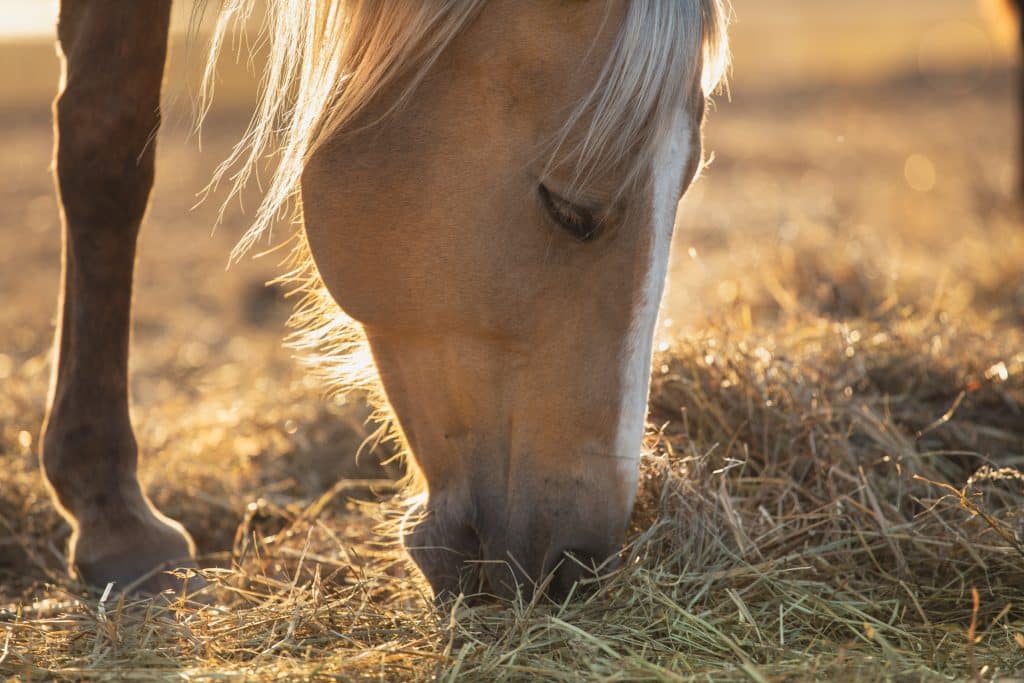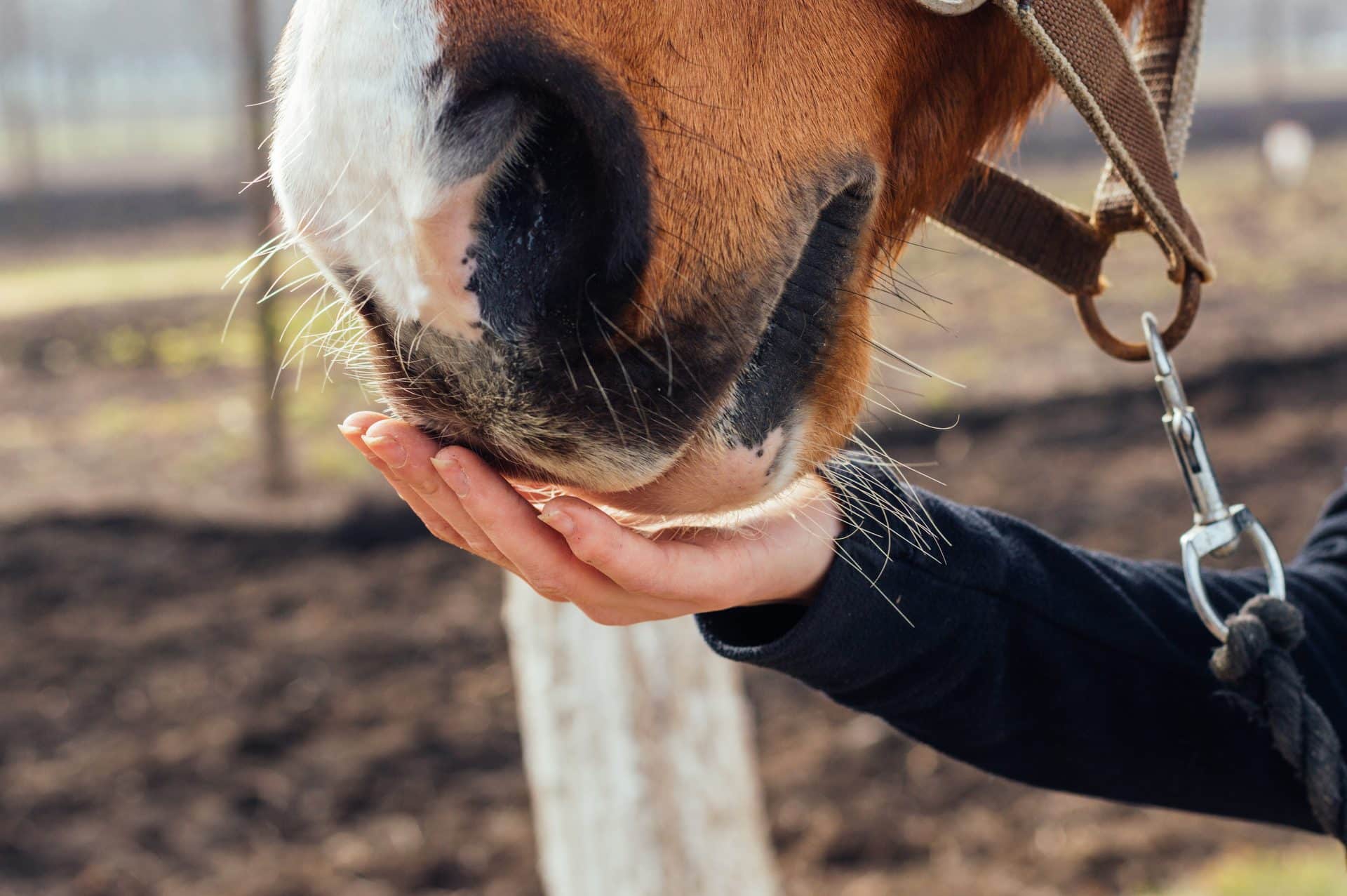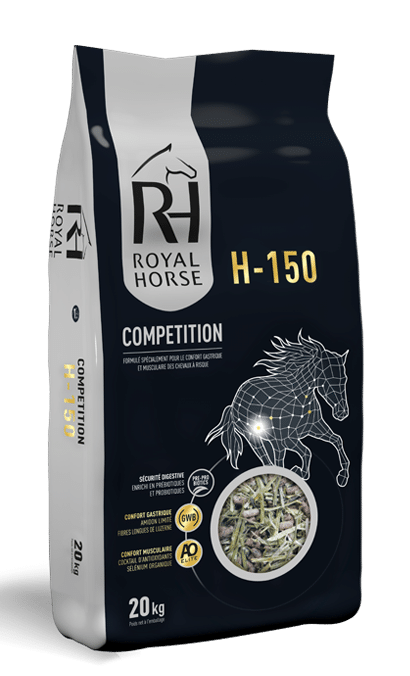A horse’s well-being depends on several factors, such as its environment, lifestyle, activity, etc. Your horse’s diet can also play a key role in his well-being. It must meet all its nutritional and energy needs.
The non-negligible basis of the horse’s diet: forage
The horse is a monogastric herbivore, which spends 16 hours a day feeding in its natural state. It therefore ingests food in small quantities continuously. In a more confined environment, such as a stall or a small paddock, the horse changes its lifestyle. This change has consequences on its organism. Therefore, it is often recommended to leave hay on a free choice basis in the stall. This allows the horses to keep a feeding pattern that is as close as possible to their natural diet.
By ingesting hay, the horse chews, which activates the production of saliva, and allows a good digestion. On the other hand, a horse without enough hay will not produce much saliva and may suffer from digestion problems. Also, being busy chewing prevents the horse from developing stereotypies that could be a sign of boredom (air or bear tic, etc.).
If the “all-you-can-eat hay” option is not feasible, hay should at least be served in 2 rations, in the morning and in the evening. The quality of the hay is essential to your horse’s well-being. A good hay can be recognized by its good smell, the fact that it does not contain mold or dust in large quantities. It is usually dry, green in color, and has long, thick fibers.

Composing the ideal concentrated feed ration for your horse
Not all horses need concentrated feed. This may be the case for horses with no activity and a large area of grass. However, for horses with regular activity, it may be necessary to introduce concentrates in their feed. Concentrated feeds are often composed of fibers and cereals in a reasoned way and adapted to a type of activity or a physiological stage for the breeding part. They allow to provide a more important energetic contribution and to compensate the risk of deficiencies of a ration based on forages and/or cereals.
Royal Horse has developed several ranges to meet the needs of all types of horses, whatever their age or activity. The aim of these feeds is to provide them with the energy necessary for their activity. They do also contribute to their well-being with feeds that will:
- Support the horse’s microbiota thanks to pre-biotics of the MOS type (Mannan-oligosaccharides) which help secure the horse’s digestive transit
- Support muscular effort, thanks to a high content of vitamin E and organic selenium, which will provide an antioxidant action and protect the muscles
- Facilitate recovery thanks to the high BACA
- Contribute to the muscle development of the horse, thanks to quality proteins and L-Carnitine contained in the feed. This nutrient also promotes the use of energy compounds from fats. It allows the horse to draw new sources of energy from its diet.
- Limit starch intake for the horse’s digestive well-being (especially in H150 feed, which has a starch content of no more than 10%). This promotes gastric comfort in horses prone to ulcers or laminitis.
Royal Horse feeds are available in pellets or flakes. You can find them in many sales outlets. Do not hesitate to contact our specialists to choose the ideal food for the well-being of your horse.




